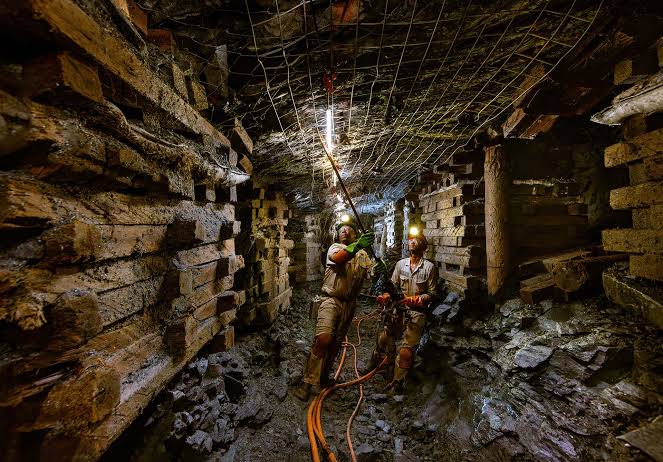News
Barberton Illegal Miner Says Hunger Will Drive Him Back Underground

In Barberton, Survival Is Found Underground
In the hills around Barberton, gold has always been more than just a metal, it’s a lifeline. For one man, it’s the only way he knows to keep food on the table.
Speaking in hushed tones after narrowly escaping a police raid at Sheba mine last week, the Swazi-speaking miner, a lifelong Barberton resident who once worked for local mining companies says he is not about to stop.
“We are unemployed while we are surrounded by mines,” he told me, his hands still flecked with dirt. “If someone offers us jobs, we take them, because then we can put food on the table. The truth is, we’re finding minerals in places where they say there is nothing left.”
A crackdown that won’t end the digging
Over the past few days, more than 500 illegal miners have been arrested in the Barberton area and hauled before local courts. The raids are part of a broader clampdown on so-called zama zamas, who work without permits in abandoned shafts or on unused mining land.
But the arrests seem unlikely to slow the work. For men like this miner, joblessness and the hunger that follows, is a stronger force than the fear of prison.
Calls for change: from criminalisation to regulation
Local activists argue that the government is fighting the wrong battle.
“Areas where illegal mining activities take place should be declared zones for artisanal gold miners,” says Nolwazi Serero of the Artisanal Small-Scale Mining Council. She believes legalising and regulating the trade could create thousands of jobs and reduce the dangers of working underground without oversight.
Her organisation points to a glimmer of hope: the draft Mineral Resources Development Bill of 2025, which includes a proposed licensing system for artisanal miners. If passed, it could give miners legal standing to work in abandoned or low-yield sites, turning dangerous informal operations into safe, taxable businesses.
Why it matters for South Africa’s mining future
Mining analyst David van Wyk says the country needs to face a hard truth, large-scale industrial mining is shrinking. “We should be creating favourable conditions for artisanal and small-scale miners, and help communities add value to the minerals they extract, for example, through cottage jewellery manufacturing,” he says.
In Barberton, where unemployment bites hard and the gold seams still glint in the dust, that shift could mean the difference between life above ground and another descent into the dark.
Social media divided over the issue
On Facebook and X (formerly Twitter), reactions to the Barberton raids have been polarised. Some locals praise the police for “cleaning up the illegal miners,” blaming them for environmental damage and violent turf wars. Others argue that without real jobs, men will always return to the shafts and that legalisation could be the only realistic path forward.
For the miner I spoke to, the debate feels far away. His priority is immediate and personal. “If I don’t work, my children don’t eat,” he says simply. “So yes, I’ll go back.”
{Source: The Citizen}
Follow Joburg ETC on Facebook, Twitter , TikTok and Instagram
For more News in Johannesburg, visit joburgetc.com



























